Iran launches hundreds of ballistic missiles at Israel in retaliation for airstrikes
Israeli strikes killed 78 people, including top military commanders, and wounded over 320: Iran´s ambassador to the UN
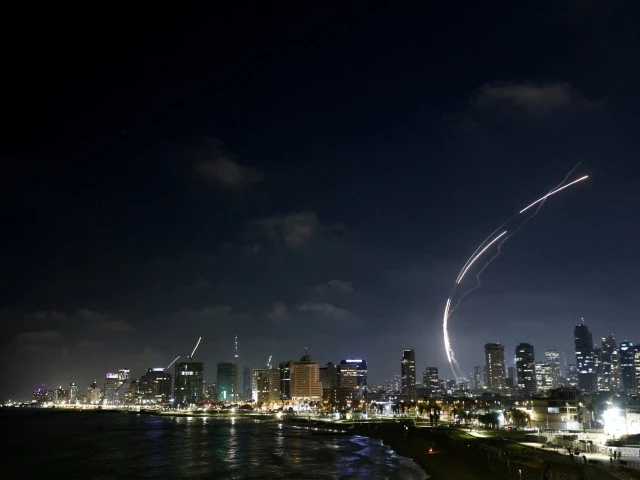
Explosions were heard over Tel Aviv and Jerusalem as sirens sounded on Friday night across Israel following what the country's military spokesman said was the firing of missiles from Iran.
Iran's state news agency IRNA said hundreds of ballistic missiles had been launched as part of “Operation True Promise 3”, in retaliation for Israel's biggest ever attacks on Iran, blasting Iran's huge underground nuclear site at Natanz and wiping out its top military commanders.
Iranian media said the country's forces downed two Israeli fighter jets and detained one pilot. "At least two Israeli F-35 fighter jets were shot down in Iranian skies," Iranian media reported. It declared that Tehran's response to Israel had "officially begun," marking a sharp escalation in regional tensions.
Israel’s strikes on Iran have killed 78 people, including top military commanders, and wounded more than 320, the Islamic republic’s ambassador to the United Nations said.
"So far, 78 people, including senior military officials, have been martyred and over 320 other injured. The overwhelming majority of them (are) civilians, including women and children," Iran´s ambassador to the UN Amir Iravani told the Security Council.
Meanwhile, Israeli military said that it attacked and destroyed Iranian air force military bases, including bases of Hamadan and Tabriz, in new attack.
Air defences in Iran's capital Tehran were activated early on Saturday to intercept fresh Israeli strikes, state media IRNA reported a day after Israel initiated a number of attacks on Iran's nuclear programme and military command.
Iran's Revolutionary Guards said they carried out attacks against dozens of targets in Israel in retaliation for the latter's biggest attacks ever against Iran.
Iran's Foreign Minister Abbas Araghchi rejected calls on Tehran to show restraint following Israel's large-scale deadly attack on the Islamic republic.
Araghchi "rejected calls for Iran to show restraint in the face of Israeli aggression" in call with British Foreign Secretary David Lammy, according to an Iranian foreign ministry statement. Iranaian senior official told Reuters that nowhere in Israel will be safe, adding that the country's revenge will be painful.
Iranian long-range missiles have targeted sites across Israel, injuring at least 40 people, in retaliation for deadly Israeli attacks on nuclear sites and military leaders, Israeli media outlet Haaretz reported, citing emergency services.
At least 21 people have been injured in an Iranian attack on a building in Tel Aviv, Israel's paramedics service Magen David Adom said on Friday.
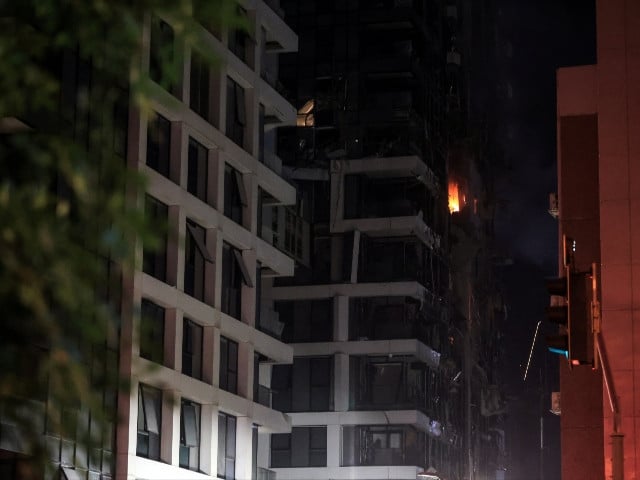
Fire burns in a building at an impact site following a missile attack from Iran on Israel, at Tel Aviv, Israel, June 13, 2025. Photo: Reuters
Air raid sirens blared across Jerusalem and Tel Aviv early Friday as Israel's military confirmed the launch of multiple missiles from Iran. The Israeli Defense Forces (IDF) instructed civilians to seek shelter immediately and remain there until further notice.
Loud explosions were heard over Jerusalem and Tel Aviv, with AFP and Reuters correspondents reporting booms consistent with missile interceptions. Iran's state media confirmed that hundreds of ballistic missiles had been launched in response to recent Israeli strikes.
An Israeli military spokesperson said the country was actively intercepting the incoming threats and emphasized that Israel could defend itself without foreign assistance.
The US military has helped shoot down Iranian missiles that were headed toward Israel, two US officials said on Friday. One of the officials, speaking on the condition of anonymity, said that for now the US interceptions had been carried out by ground-based systems.
Let the dear Iranian nation know this, be certain and assured that every effort will be made in this regard.
— Khamenei.ir (@khamenei_ir) June 13, 2025
Iran’s Supreme Leader Ayatollah Ali Khamenei vowed that the country’s armed forces would respond “with all might” to Israeli attacks that killed several senior commanders, nuclear scientists and civilians across multiple Iranian cities.
In a televised address to the nation, Khamenei said the Islamic Republic “will not compromise” in the face of Israeli aggression, promising that the Iranian military would leave the “scoundrel Zionist regime miserable.”
“This crime will not go unpunished,” he said, warning that Israel must now prepare for “severe punishment.”
The Supreme Leader said that Israel initiated a war and said it will not be allowed to do "hit and run" attacks without grave consequences. The Iranian nation must be guaranteed that our response will not be half-measured.
The Zionist regime will not escape safely from the heinous crime they’ve committed.
— Khamenei.ir (@khamenei_ir) June 13, 2025
Earlier, Israel launched another wave of attacks on Iran, targeting key military sites in Tabriz, located in the northwest and Shiraz in the south, according to Iranian media reports.
This latest wave of Israeli attack follows an earlier assault on Iran's nuclear sites, missile factories and military facilities on Friday.
Israel claims its aggression is aimed at preventing Tehran from developing nuclear weapons, despite Iran's long-standing insistence that its nuclear programme is solely for peaceful civilian purposes.
Also Read: Iran's new IRGC chief vows to ‘open gates of hell’ after Israeli attacks
Iran Supreme Leader Ayatollah Ali Khamenei condemned the attack, vowing that Israel would face severe punishment. Khamenei stated that Iran's armed forces would ensure retribution and that the martyrs' successors would continue their work. He warned Israel of a "bitter and painful fate" in the wake of the aggression.
Israel declared a state of emergency in anticipation of any retaliation.
Key developments from Israel's attacks:
- Israel attacks Iran’s nuclear and military sites
- Three of Iran's top officials killed
- Six nuclear scientists, 50 civilians were injured
- US denies involvement
- Israel claims to have intercepted Iranian drones
- Israeli military on high alert for retaliation
- Flights disrupted after Israeli attack on Iran
- World leaders call for restraint
The latest Israeli blitz targetted Tabriz, with early reports indicating that an airport and nearby air bases were targeted, Iranian Tasnim News Agency reported.
Simultaneously, a missile production facility in Shiraz was struck by Israeli aircraft.
With this crime, the Zionist regime has prepared for itself a bitter, painful fate, which it will definitely see.
— Khamenei.ir (@khamenei_ir) June 13, 2025
Iranian media and witnesses reported explosions at several sites and the country's main nuclear sites, missile factories and military facilities, including at the country's main uranium enrichment facility at Natanz.
Six nuclear scientists in Iran were killed in Israel's attack. The semi-official Tasnim news agency identified the victims as Abdulhamid Minouchehr, Ahmadreza Zolfaghari, Seyyed Amirhossein Faqhi, Motablizadeh, Mohammed Mehdi Tehranchi, and Fereydoun Abbasi.
At least 50 people injured in the Israeli attack have been taken to Chamran Hospital in Tehran’s Tajrish district, with 35 of the injured being women and children, Tasnim news agency reported.
Iran's Supreme Leader Ayatollah Ali Khamenei said in a statement that Israel had "unleashed its wicked and bloody hand in a crime against Iran and that it would receive "a bitter fate for itself".
Alongside extensive air strikes, Israel's Mossad spy agency led a series of covert sabotage operations inside Iran, Axios reported, citing a senior Israeli official. These operations were aimed at damaging Iran’s strategic missile sites and its air defence capabilities.
Iranian state media reported that at least six nuclear scientists, Fereydoun Abbasi and Mohammad Mehdi Tehranchi, were killed in Israeli attacks in Tehran.
However, the Iranian nuclear agency has stated that the Israeli attacks on the nuclear facilities, saying that no one was killed at the site that was hit.
In a statement on Friday after the Israeli regime's airstrikes, the Atomic Energy Organization of Iran (AEOI) confirmed that damages were inflicted on parts of various complexes in the attack on the Shahid Ahmadi Roshan enrichment complex
"We are at a decisive moment in Israel's history," Israeli Prime Minister Benjamin Netanyahu said in a recorded video message.
"Moments ago, Israel launched Operation Rising Lion, a targeted military operation to roll back the Iranian threat to Israel's very survival. This operation will continue for as many days as it takes to remove this threat."
An Israeli military official said Israel was striking "dozens" of nuclear and military targets, including the facility at Natanz in central Iran. The official said Iran had enough material to make 15 nuclear bombs within days.
Tel Aviv's Ben Gurion Airport was closed until further notice, and Israel's air defence units stood at high alert for possible retaliatory strikes from Iran.
"Following the pre-emptive strike by the State of Israel against Iran, a missile and UAV (drone) attack against the State of Israel and its civilian population is expected in the immediate time frame," Defence Minister Israel Katz said in a statement.
Read More: Iran appoints new military leadership after deadly Israeli attacks
Israeli military Chief of Staff Eyal Zamir said tens of thousands of soldiers had been called up and "prepared across all borders".
"We are amidst a historic campaign unlike any other. This is a critical operation to prevent an existential threat, by an enemy who is intent on destroying us," he said.
Israeli Minister Gideon Saar was holding a "marathon of calls" with counterparts around the world regarding Israel's attack on Iran, the foreign ministry said in a statement.
The United States said it had no part in the operation, which raises the risk of a fresh escalation in tensions in the Middle East, a major oil-producing region.
US not involved
US President Donald Trump would convene a meeting of the National Security Council on Friday morning, the White House said.
Statement from Secretary of State Marco Rubio
— The White House (@WhiteHouse) June 13, 2025
“Tonight, Israel took unilateral action against Iran. We are not involved in strikes against Iran and our top priority is protecting American forces in the region. Israel advised us that they believe this action was necessary for its… pic.twitter.com/5FFesh3dkF
Iran's armed forces spokesperson said Israel and its chief ally, the United States, would pay a "heavy price" for the attack, accusing Washington of providing support for the operation.
An Israeli official told Israel's public broadcaster Kan that Israel had coordinated with Washington on the strikes.
US Secretary of State Marco Rubio, however, said the United States was not involved and Tel Aviv had acted unilaterally for self-defence.
"We are not involved in strikes against Iran and our top priority is protecting American forces in the region," Rubio said in a statement.
"Let me be clear: Iran should not target U.S. interests or personnel," he added.
The State Department issued an advisory saying that all US government employees in Israel and their family members should "shelter in place until further notice".
The attacks triggered sharp falls in stock prices in early Asian trade on Friday, led by a selloff in US futures, while oil prices jumped as investors scurried to safe havens such as gold and the Swiss franc.
Flights disrupted after Israeli attack on Iran
Airlines cleared out of the airspace over Israel, Iran and Iraq, and Jordan on Friday after Israel launched attacks on Iran, Flightradar24 data showed, with carriers scrambling to divert and cancel flights to keep passengers and crew safe.
9-second video of the clearing of Iranian and Iraqi airspace. pic.twitter.com/VZLWbmk9sC
— Flightradar24 (@flightradar24) June 13, 2025
Tel Aviv's Ben Gurion Airport was closed until further notice, and Israel's air defence units stood at high alert for possible retaliatory strikes from Iran.
Israeli flag carrier El Al Airlines said it had suspended flights to and from Israel.
Iranian airspace has been closed until further notice, according to state media and notices to pilots.
World reacts to Israeli attack on Iran
The Israeli aggression has triggered reactions from major countries across the globe. Israeli Prime Minister Benjamin Netanyahu claimed the country was targeting Iranian scientists working on a nuclear bomb and missile factories in a so-called "operation" that would continue for days.
Iran has formally requested an emergency meeting of the United Nations Security Council (UNSC) following Israel’s attacks on multiple Iranian military, nuclear, and civilian sites
Nuclear talks deadlocked
US and Iranian officials were scheduled to hold a sixth round of talks on Tehran's escalating uranium enrichment program in Oman on Sunday, according to officials from both countries and their Omani mediators. But the talks have appeared to be deadlocked.
Trump said on Thursday that an Israeli strike on Iran "could very well happen," but reiterated his hopes for a peaceful resolution.
A source familiar with US intelligence reports said there has been no recent change in the U.S. intelligence assessment that Iran is not building a nuclear weapon and that Khamenei has not authorised the restarting of the nuclear weapons program that was shuttered in 2003.
Even so, US intelligence had indicated that Israel was preparing a strike against Iran's nuclear facilities.
The US military was planning for the full range of contingencies in the Middle East, including the possibility that it might have to help evacuate American civilians, a US official told Reuters, speaking on condition of anonymity.



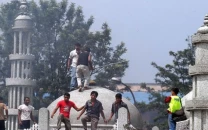

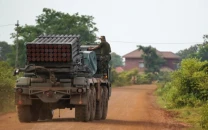
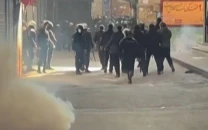
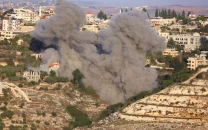
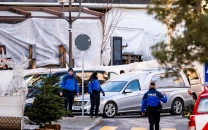













COMMENTS (1)
Comments are moderated and generally will be posted if they are on-topic and not abusive.
For more information, please see our Comments FAQ